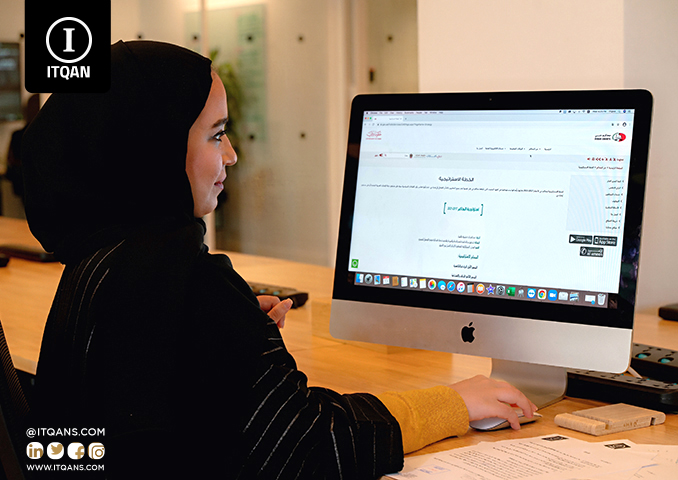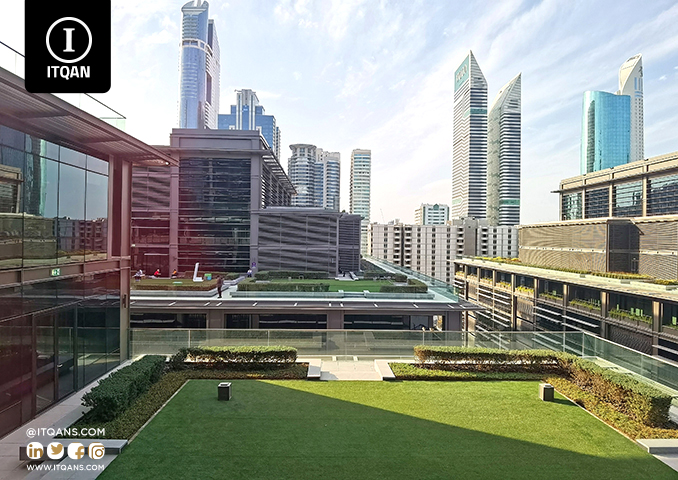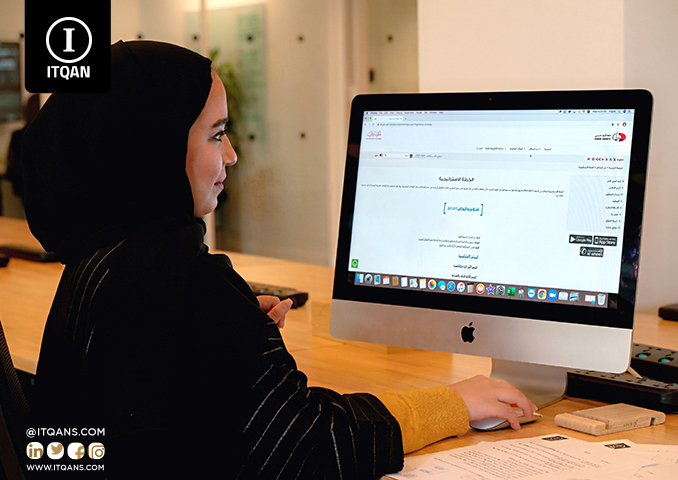Free zones are considered one of the most attractive options for businessmen and investors seeking to establish new companies in an environment that encourages growth and innovation. These areas provide a regulatory and business environment specifically designed to attract foreign and local investments, making them a preferred destination for startups and global corporations alike. In this context, it is important to understand the procedures, advantages and challenges associated with establishing a Free Zone Free Zone Company to ensure making the most of these opportunities.
In this article, we will take a comprehensive look at the advantages of establishing a free zone company, including tax exemptions, full foreign ownership, and ease of operations and procedures. We will also cover the basic steps for establishing a company in these regions, from choosing the type of company and submitting the required documents to obtaining the necessary licenses. Finally, we will review some of the potential challenges that investors may face, such as upfront costs, compliance with local laws, and restrictions on certain business activities.
This article aims to provide a comprehensive guide that will help you understand everything related to establishing a free zone company, enabling you to make informed and sustainable decisions in your investment journey.

What are free zones?
Free zones, or “free zones” as they are known, are designated areas that have distinct economic characteristics and commercial facilities compared to other regions within the country. These areas aim to attract investments and enhance economic activity by providing a comfortable business environment for investors and companies.
In these zones, companies enjoy tax and customs privileges, including exemptions from corporate tax and value-added tax on import and export. In addition, free zones provide facilities in licensing and visa issuance procedures, which contributes to accelerating the process of starting a business and reducing administrative burdens.
Free zones are also an ideal haven for companies seeking international expansion thanks to their strategic location, which allows them to access new markets easily. Free zones are often equipped with modern infrastructure and advanced logistics services, such as ports and airports, enhancing the ability to distribute and transport highly efficiently.
Among other benefits offered by free zones is 100% foreign ownership of companies, without the need for a local partner, which provides investors with complete control over their projects. Many free zones in different countries offer various support programs that include training, guidance and advisory services, which helps startups grow and prosper.
Rules for establishing a company in the Free Zone
Establishing a company in the free zones in Dubai requires following a set of specific rules and procedures. Here are the most important rules to know:
- Choosing the type of free zone: Dubai contains many free zones, each with its own specialization, such as the Dubai International Financial Center (DIFC) for financial trade, and Dubai Media City for media and marketing. Choose the area that suits your business.
- Determine the type of company: Different types of companies can be established in the Free Zone, such as limited liability companies (LLC), sole proprietorships, or holding companies. You should select the type that best suits your business needs.
- Submitting an application for incorporation: Submit an application for incorporation of the company to the specified Free Zone administration. The application typically includes information about the business, corporate structure, and shareholders.
- Compliance with Legal Requirements: You must comply with the local laws and regulations of each Free Zone. Some free zones may require additional documents such as a business plan, feasibility study, or special approvals.
- Choosing a trade name: You must choose a trade name that complies with the requirements of the Free Zone, and not use previously registered trade names that conflict with local laws.
- Office rental: It is usually necessary to rent office space within the Free Zone. Some free zones provide fully equipped offices as part of the establishment package.
- Signing contracts and submitting documents: Establishing the company requires signing contracts with the Free Zone administration and submitting documents such as passports, residence certificates, and the company’s legal documents.
- Obtaining licenses: After submitting the application and documents, you will obtain the commercial or industrial license from the Free Zone Administration, which allows you to start practicing commercial activity.
- Opening a bank account: You will need to open a bank account for your company in Dubai after obtaining the license. Many banks in Dubai offer special services to companies in the Free Zone.
- Compliance with Labor Laws: Ensure compliance with local labor laws regarding labor recruitment, work visas, and payroll. Some free zones provide special visa services.
- Annual Renewal: The license and company must be renewed annually, which includes submitting a renewal application, paying fees, and updating documents if necessary.
- Tax advantages: Companies in the Free Zone usually benefit from complete tax exemptions on profits, in addition to other benefits such as not imposing a sales tax.
Establishing a company in the Free Zone provides many advantages, such as procedural facilities and tax privileges, but it is important to adhere to all rules and procedures to ensure the success of the establishment process and the continuation of your business smoothly.
Types of companies that can be established in the Free Zone
Here is a table showing the types of companies that can be established in free zones:
| Type of Company | the description |
|---|---|
| Limited Liability Company (LLC) | A limited liability company enables the partners’ liability to be limited to their invested funds only. These companies provide flexibility in business management and expansion. |
| Company | A subsidiary of a parent company, which is registered separately but remains under the management of the parent company. It is used to expand the parent company’s operations in a new market. |
| Private joint stock company | A company established by a small group of individuals or entities, and whose shares are not publicly traded. These companies provide flexibility in distributing profits and managing finances. |
| Sole proprietorship company | A company owned and operated by one individual. It provides ease in establishing and managing the business, and allows the owner to have full control over all aspects of the company. |
| Limited liability company for individuals | A limited liability company but owned by one individual. It provides personal liability protection and allows full control by the founder. |
| Public joint stock company | A company whose shares are traded on financial markets and has a wide investor base. These companies may be larger and have strict regulatory requirements. |
| commercial Corporation | A company specializing in commercial activities, retail or wholesale. It focuses on trade and the provision of goods and services in markets. |
| Industrial company | A company specialized in production and manufacturing, focusing on transforming raw materials into products ready for sale or use. |
| Service company | A company that provides various services such as consulting, information technology, or any other type of professional services. |
| Technology company | A company specializing in developing, maintaining and providing technical solutions, such as software, hardware and technical services. |
It should be noted that licenses and requirements may vary slightly between different free zones, so it is best to check the requirements for each zone before setting up.
The cost of establishing a Free Zone Free Zone company
The cost of establishing a company in the Free Zone is affected by several factors related to the type of business activity, location, and requirements of each Free Zone. Here are the main factors that affect the overall cost:
- Administrative fees and licenses: These fees include the costs of applying to obtain a commercial or industrial license from the Free Zone Administration. There may be different fees depending on the type of license you need.
- Office rent: In the free zones, you will need to rent office space, and rental costs may vary based on the size of the office and its location within the free zone. Some free zones provide ready-made offices as part of the establishment package.
- Company incorporation costs: These costs include company registration fees, costs of preparing incorporation documents, and incorporation contracts. These costs may vary depending on the size and type of company.
- Additional services: Additional services may include such as legal and accounting advice, and assistance with visa procedures. The costs of these services depend on the type of services you need.
- Visa costs: These costs include work and residency visas for founders and employees, which may need to be renewed periodically.
- Other government fees: These may include fees related to government services such as registering with the Chamber of Commerce or paying annual license renewal fees.
Advantages of establishing a company in the Free Zone
Establishing a company in the Free Zone offers a set of advantages that make it an attractive option for entrepreneurs and investors. These advantages contribute significantly to stimulating economic growth and attracting foreign investments. Below we review the most prominent of these advantages:
- Tax exemptions
Tax exemptions are considered one of the most important advantages provided by the Free Zone. In many free zones, companies can benefit from full or partial tax breaks on profits and income for a specified period of time, allowing them to focus on growth and expansion without worrying about tax burdens. In addition, exemptions from customs duties may be available on imports and exports, facilitating international business operations and reducing operating costs.
- Complete foreign ownership
In most Free Zones, foreign investors are allowed to own 100% of companies. This means that there is no need for a local partner, giving investors greater freedom to manage their companies and make strategic decisions. This feature is particularly attractive for international companies that want to maintain full control over their operations and investments.
- Ease of operations and procedures
Free Zone provides an integrated business environment that makes it easier for companies to start and manage their businesses efficiently. Bureaucratic procedures are often simplified and quick, enabling companies to obtain the necessary licenses and approvals in a short time. In addition, the Free Zone provides advanced infrastructure and modern facilities, such as offices, warehouses, and logistics centers, which supports daily operations and facilitates business movement.
These advantages make the Free Zone an ideal environment for startups and large international companies alike, as they can benefit from the economic and operational incentives offered by these regions.
In conclusion, establishing a company in the Free Zone can be a strategic and effective step for any entrepreneur or investor looking for promising business opportunities in a flexible and supportive business environment. By taking advantage of Free Zone’s many advantages such as tax exemptions, full foreign ownership, and ease of procedures, companies can achieve rapid growth and sustainable expansion. However, potential challenges such as upfront costs, compliance with local laws, and restrictions on certain business activities must also be considered.
With good planning and consultation with specialized experts, it is possible to overcome these challenges and make the most of the available opportunities. Ultimately, establishing a company in the Free Zone is an attractive and flexible option that opens new doors for growth and innovation in an ever-changing and evolving market.
The most important frequently asked questions about establishing a company in the Free Zone
Do I need a local partner to establish a company in the Free Zone?
No, in the Free Zone, foreign investors can own 100% of the company without the need for a local partner, which distinguishes it from companies established on the Dubai mainland.
What are the documents required to establish a company in the Free Zone?
Documents required usually include passports of the founders, residence visas (if applicable), lease agreement, business plan, and other legal documents.
How long does it take to establish a company in the Free Zone?
The incorporation process can take from a few weeks to approximately a month, depending on how quickly documents are submitted and requirements are met.
Is it possible to open a company bank account in Dubai?
Yes, after obtaining the license, you can open a commercial bank account in Dubai. Make sure to provide the required documents requested by the bank.
What are the procedures for obtaining work and residence visas?
Applications for work and residency visas for founders and employees must be submitted through the Free Zone Department. The process includes submitting documents such as passports and employment contracts.

















